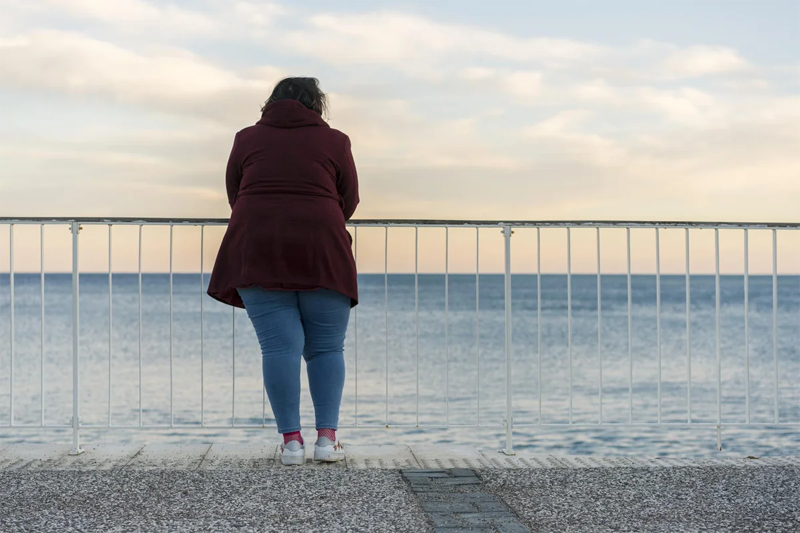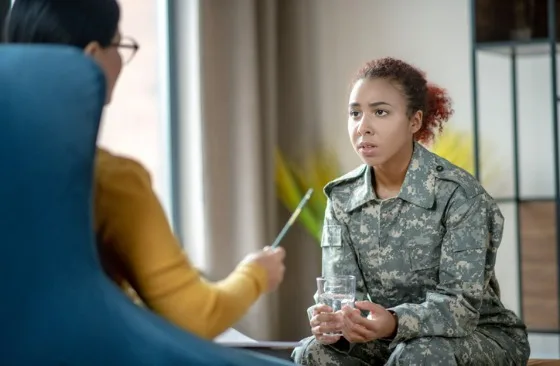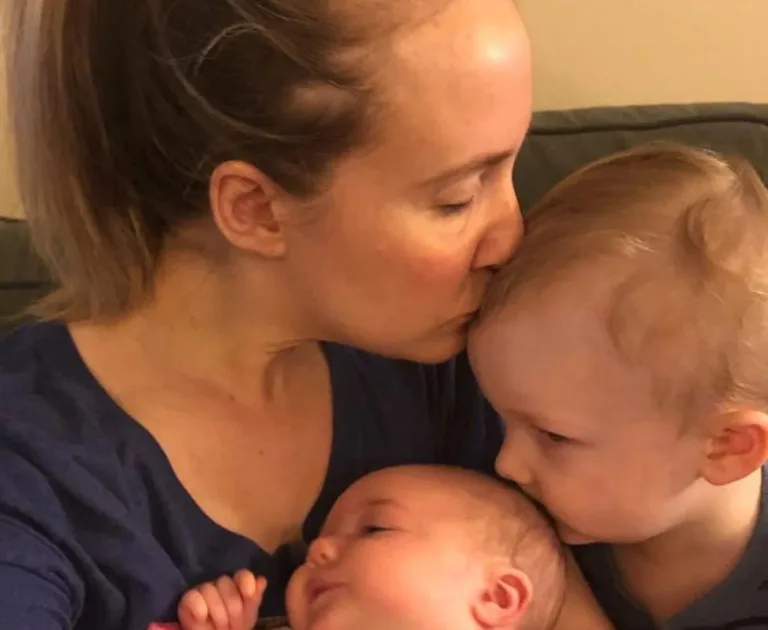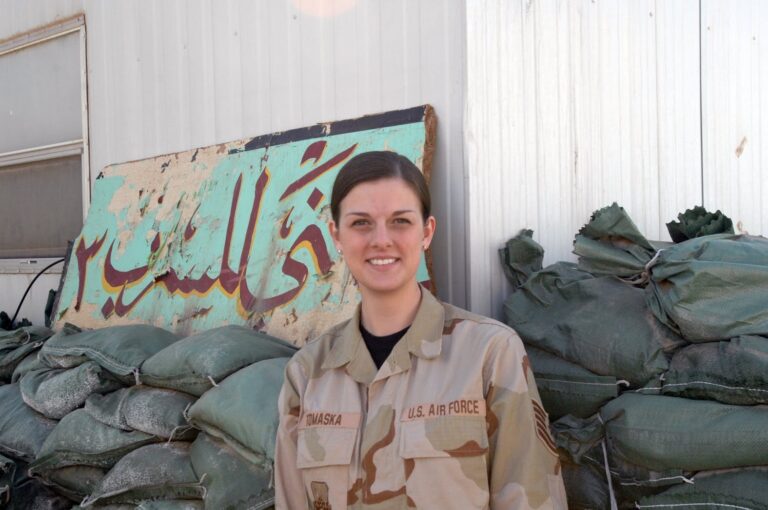As told to Gila Lyons
I’ve dealt with weight issues and bulimia since I was 16 years old. My weight’s gone up and down throughout my life, and today — at 55 years old — I’m 5’3″ and weigh 190 pounds. At times, I feel depressed and humiliated by my weight, but I have hope that I’ll lose weight when I’m ready. I’ve done it before and I can do it again. But being willing to lose weight isn’t always easy when you have childhood sexual abuse in your history.
As a teenager, I loved to dance, and I seemed to have a talent for it. Between my sophomore and junior years in high school, I gained between 10 and 15 pounds. I was still only around 135 pounds, yet some of my dance teachers told me I could do something in dance only if I lost weight.
I was exquisitely calibrated for bulimia to step in when I heard this message. Bingeing and vomiting became a pinpoint expression of everything I couldn’t control but still couldn’t accept. I felt like it was giving me back some of the control over my body that I’d lost as a victim of childhood incest. Instinctively, I understood the connection between food and sexual assault. How comforting, those big pillows of cake, the smooth dream that was ice cream.
I found it difficult to diet, but bingeing and vomiting, I could do. I cannot tell you what a relief it was to be able to diet most of the time and then binge and vomit. I returned to school my senior year weighing only about 120 pounds, and over the year, whittled that down to 107.
During college, my gag reflex diminished, and I could no longer make myself vomit. But that didn’t stop me from bingeing, and my weight crawled up to 175 pounds. No matter how much I ate, I couldn’t escape from the abuse I had endured. Once I graduated, I no longer wanted food to rule my life. I found Overeaters Anonymous (OA), which was amazing for my struggles with weight, eating and mental health. OA offered me a community of women who were just as willing to be honest about weight and eating disorders as I was. It was a huge relief, and I fell gratefully into the arms and support of that community. OA helped me stop bingeing by giving me people I could call when I wanted to overeat, people I could discuss my feelings with so I wouldn’t feel the urge to stuff my feelings down with food.
Replacing my addiction with spirituality was a huge help for me. I was wary of “God” and the pronoun “he” associated with it, but as I discovered my own spirituality through the 12-step program and reconnection with my Jewish background, I learned to form a profound relationship with a loving God, whom I like to refer to as “she.”
After a year in OA, my sponsor suggested I join her in a tai chi class. Just like OA, tai chi had me at hello. I’ve been practicing for 32 years now, for not only the exercise benefit but for the calm that ensues both immediately and long-term. I also started seeing a therapist.
Therapy was a great place for me to process issues on a deeper level and at greater length than what was appropriate for meetings — especially as memories of my abuse rose to consciousness. I’ve gone to therapy once a week for the past 30 years and I find that therapy can be extremely beneficial for incest survivors.
After two years of therapy, OA and tai chi, my weight stabilized between 120 and 130 pounds. For the first time in more than 10 years, I wasn’t counting calories or weighing myself obsessively. I stopped overeating and began to exercise. I felt confident in this way of life and in my normal to slim body for about 15 years, but having children in my late 30s destabilized my weight again.
For survivors of childhood abuse, having children can be really triggering. We were abused as children, when we were fragile and vulnerable. We weren’t taken care of or respected like we deserved to be by the grown-ups in charge, and seeing our own children so fragile and vulnerable can remind us of everything we went through at that stage. We can be afraid we might repeat the mistakes of our caretakers and furious all over again at what happened to us. It took me years to trust that I wouldn’t abuse my children the way I was abused.
Parenting my girl-child when I was abused as a girl-child is the greatest challenge I’ve ever come through — harder even than surviving the original abuse. All the feelings I grew up with as an abused child resurfaced. I felt trapped and hated my body, and I was gaining and losing weight on a roller coaster. Now I’m struggling with a 10-year relapse in overeating that’s led me to weigh more than I ever have before, and I often feel frustrated and unmotivated when it comes to losing weight.
But I have hope.
I have a lot of things going for me: I have a great marriage and cherished children. Tai chi is still a consistent part of my life, and I try to fit in cardio when I can. I consider my life a success, especially when I consider where and what I came from. I’m in therapy, and I won’t give up. I felt less hope as a child than I do now, and I still managed to get through.
I believe no one can truly address their addictions without understanding and working through their trauma. You don’t need to do it the way I did, but finding the things that bring you comfort, community, insight and joy are crucial for healing anything that afflicts your body or mind.
For abuse survivors, I want you to know that life is too beautiful to waste feeling injured by dysfunctional people who no longer have power over you. I’m so grateful I no longer carry the pain as I did before. I wish you that freedom, too.
Resources:
National Sexual Violence Resource Center
National Sexual Assault Telephone Hotline – 800.656.HOPE (4673)
RAINN (Rape, Abuse & Incest National Network)
Survivors of Incest Anonymous















